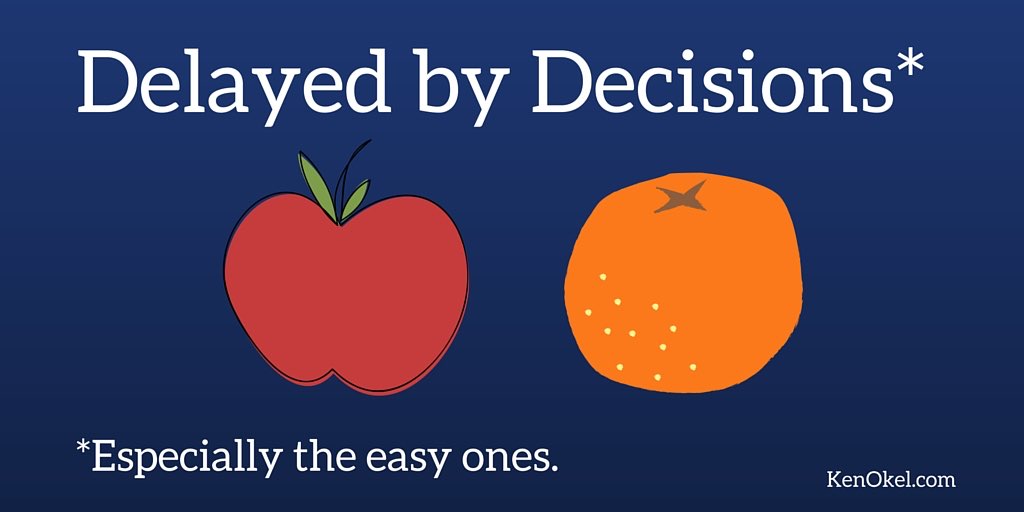 Not long ago, I found myself having to make a decision between two pieces of work. Both were good examples. I was about to share the two examples with friends and colleagues and find out which one they liked best.
Not long ago, I found myself having to make a decision between two pieces of work. Both were good examples. I was about to share the two examples with friends and colleagues and find out which one they liked best.
But before I hit the send button, I stopped. I realized something: I already knew which of the two options I liked best. Both were good but I had a definite opinion.
In that moment, I realized that the ease of asking others for their opinions can sometimes undermine your own. Why was I seeking out affirmation for what boiled down to a subjective opinion? Was my attempting to use others nothing more than an unconscious stall tactic?
Before the Internet, it was harder to share Option A and Option B with people. If they weren’t nearby, your decision timeline would be slowed.
Now, getting group feedback is easy and it came come minutes after you send it.
These are good things but sometimes group decisions are a productivity trap. You can spend a lot of time looking for consensus, when you already have an answer in mind. Sometimes, you may doubt yourself and reach for the outside opinions. If you’re not sure what you should do, consider these questions:
Is the Decision Life or Death?
In my situation, both options could have worked. The stakes were relatively low. For these reasons, I knew that I should go with my gut feeling.
What’s the Basis of Your Opinion?
If you’re well versed in the subject, then you have a solid foundation for an opinion. You can make an educated guess.
If you’re unsure about the subject, then you should seek out outside opinions. Explain to those people why you are asking them for their choice and have them tell you the basis of their decisions. This way you can gain confidence in the selected option if you need to defend it later.
What’s Making You Doubt Your Judgement?
Doubt is the enemy of decisions. People who experience a high level of productivity collect the facts, consider their options, and then make a decision.
They understand that there is always a chance that their choice will turn out to be wrong. They also know that inaction could be worse than making a bad choice or that both options could be equally bad.
Waffling between choices rarely leads to a good outcome. Reach out to others when you need help. But first ask if you really need the help or if you’re just looking for affirmation for the decision you already know is right.






